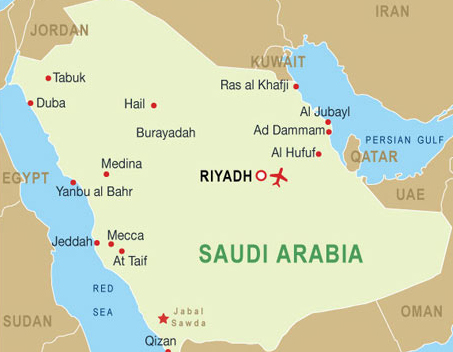The Kingdom of Saudi Arabia was founded in 1932 and it is situated in the Middle East, in the Arabian Peninsula, near Kuwait, Qatar, UAE, Oman, Jordan and Iraq. It is also the place for Muslims pilgrimage. Saudi Arabia possesses the second biggest depot of oil in the world. Ninety-five percent of its export is oil.
The Saudi Arabian government is very strict and rules as monarchy. One of the effects of this type of government is control of the Internet. As many other countries, KSA censors Internet access, mostly because they want to preserve their religious and cultural beliefs. Whether you’re a visitor or someone who lives in “the Land of the Two Holy Mosques”, blocking of websites by Saudi authorities can be frustrating and depressing. This can extremely limit your Internet surfing capabilities.
In 2001 The Council of Ministers issued a Resolution that prohibits Internet users within Saudi Arabia from publishing or accessing certain content on the Internet. The government’s Internet Services Unit (ISU) operates the high-speed data links that connect the country to the Internet; while Saudi Internet users may subscribe to any of a number of local internet service providers, all Web traffic is apparently forwarded through a central array of proxy servers at the ISU, which implements Internet content filtering roughly in line with parts of the Resolution.
If a user’s requested URL is found on the Saudi blacklist, the user is directed to a page that explicitly informs them that access to the website is denied. The ISU administrative web site explains the implementation of the government’s content filtering regime, presents the reasoning behind it, and lets Saudi internet users request that a particular site or URL be blocked or unblocked.
Communications and Information Technology Commission is the Saudi Authority in charge of telecommunication regulations. It handles the DNS structure and filtering service, hosting a firewall that blocks access to thousands of websites, mainly with adult or political content.
VoIP services, such as Viber and Nimbuzz, are also blocked through software provided by the Californian Company Narus. This is done mainly in order to protect the national telephone carrier STC from potential competition, forcing people there to use the very expensive Saudi Telecom to make all their calls. Wikipedia and Google Translate are also banned there.
Unblocking sites in Saudi Arabia is possible and easy at the same time. The main reason when it comes to being blocked is your Internet Protocol (IP) address. It gives up your location initially by country. That alone is enough for you to be blocked. There are two popular methods by which you can beat this obstacle. Both methods are widely available, but are unequal in effectiveness.
The first one is through a proxy server. A proxy server assigns a new IP address to your computer so you can freely surf blocked sites. The websites wherein you’re blocked will see the IP address of your proxy server instead of yours. In this way, you surf anonymously with a little added security. Unfortunately, this has a downside. The proxy servers are able to save data which can be used by the service provider. Trust will forever be a significant issue.
Well known as the most secure way to surf the Internet, virtual private networks are fast becoming the number one choice of Internet users. A VPN joins a PC or laptop over the Online to the workplace system enabling the distant customer to perform as if they were seated at their table in the workplace. Normally, creating VPN needs important specialized abilities as the workplace firewall program needs to be reconfigured, the VPN hosting server has to be installation and the whole lot has to be made protected. Once installation and operating, the VPN hosting server needs to be supervised (to make sure there is nothing dubious going on) and managed with the newest security areas offered by the VPN source. However, there is an alternative way to create a VPN by using VPN provider. VPN assistance gives all the features of a VPN hosting server but eliminates the complexions and cost of installation, tracking and servicing.
Tunneling technology encrypts your precious data so nobody will be able to understand it. Decryption awaits the other end with you transferring data safely. A hacker or anyone trying to capture these valuable pieces of information is denied access because only you hold the required authentication. And more importantly, your IP address remains truly hidden during the entire process. A genuinely hidden IP address allows you to gain access to blocked websites in Saudi Arabia. When you acquire the services of a reliable Saudi VPN service provider, you can use the technology anywhere around the globe. Censorship changes will continue to happen. Stay protected and uninterrupted, use virtual private networks.



